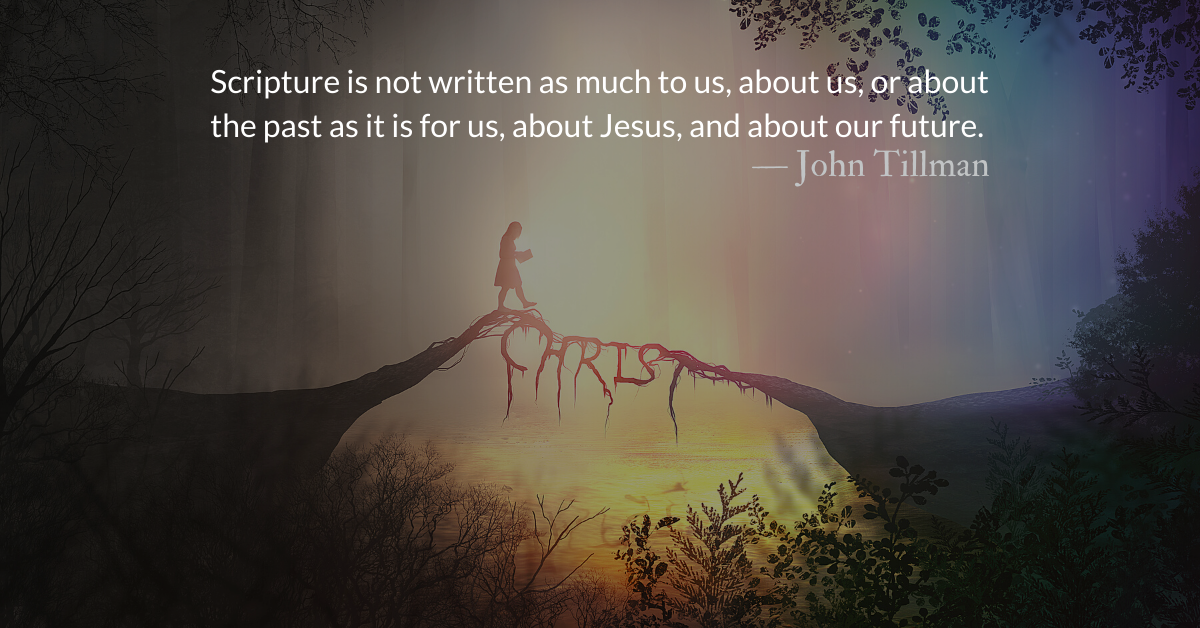Scripture Focus: 2 Peter 3.16
He writes the same way in all his letters, speaking in them of these matters. His letters contain some things that are hard to understand, which ignorant and unstable people distort, as they do the other Scriptures, to their own destruction.
Reflection: Default Settings for Scripture
By John Tillman
The “default settings” of our mindsets about scripture have a big effect on our ability to make use of them in the ways Paul and Peter intend. Here are three to adopt.
The Bible is not written to us as much as it is written for us.
The Bible is, in one context, written by God to us. Paul tells us all scripture is useful for teaching, rebuking, correcting, and training in righteousness. (2 Timothy 3.16) But in another sense, texts are written by their authors to the audience they address. When Paul wrote 2nd Timothy, he was writing to Timothy in Ephesus, not to us. Paul also was not talking about the Bible that we have today. He was referring to the Tanakh and the versions of the gospels and church writings circulating at that time. Paul’s own writing is referred to by Peter as “scripture” so we know that early church leaders considered certain contemporary writings on a higher level than simple correspondence.
The Bible is not so much about us as it is about Jesus.
We have a tendency to place ourselves in the stories of the Bible as we read them, experiencing them as we would literature. This can be helpful but we need caution and humility when placing ourselves in the story and we tend to overestimate how important our place in the story is. It is far more helpful to understand how the scripture relates to Jesus (as he explained to the Emmaus road disciples) than to understand how it relates to us.
The Bible speaks to us not only about the past, but about our future.
We will consistently misunderstand scripture if we do not labor first to understand its original meaning to its original readers. This means looking to the past. But scripture frequently speaks to us “from” the future when relating promises and prophecy that have yet to be fulfilled. We can look back and forward in the scripture at the same time.
Scripture is not written as much to us, about us, or about the past as it is for us, about Jesus, and about our future.
These seemingly contradictory mindsets work together in tension. Just as a suspension bridge supports the weight of travelers through the tension between its anchoring points, scripture supports our spiritual journey by the tension between these truths.
May we walk in them.
Divine Hours Prayer: The Refrain for the Morning Lessons
Blessed are they who do hunger and thirst after righteousness: for they shall be filled. — Mathew 5.6
– Divine Hours prayers from The Divine Hours: Prayers for Springtime by Phyllis Tickle
Today’s Readings
Isaiah 22 (Listen – 3:53)
2 Peter 3 (Listen – 3:21)
Read more about It’s in the Bible
God has equally difficult work ahead of him to fulfill his purpose in us. We are soaked in and blinded by our broken, post-truth world.
Read more about Keep Drinking the Milk of the Word
Peter, and by extension every Christian, is called to feed a flock, starting with the young. Starting with milk. Milk changes a lamb to a ram.






